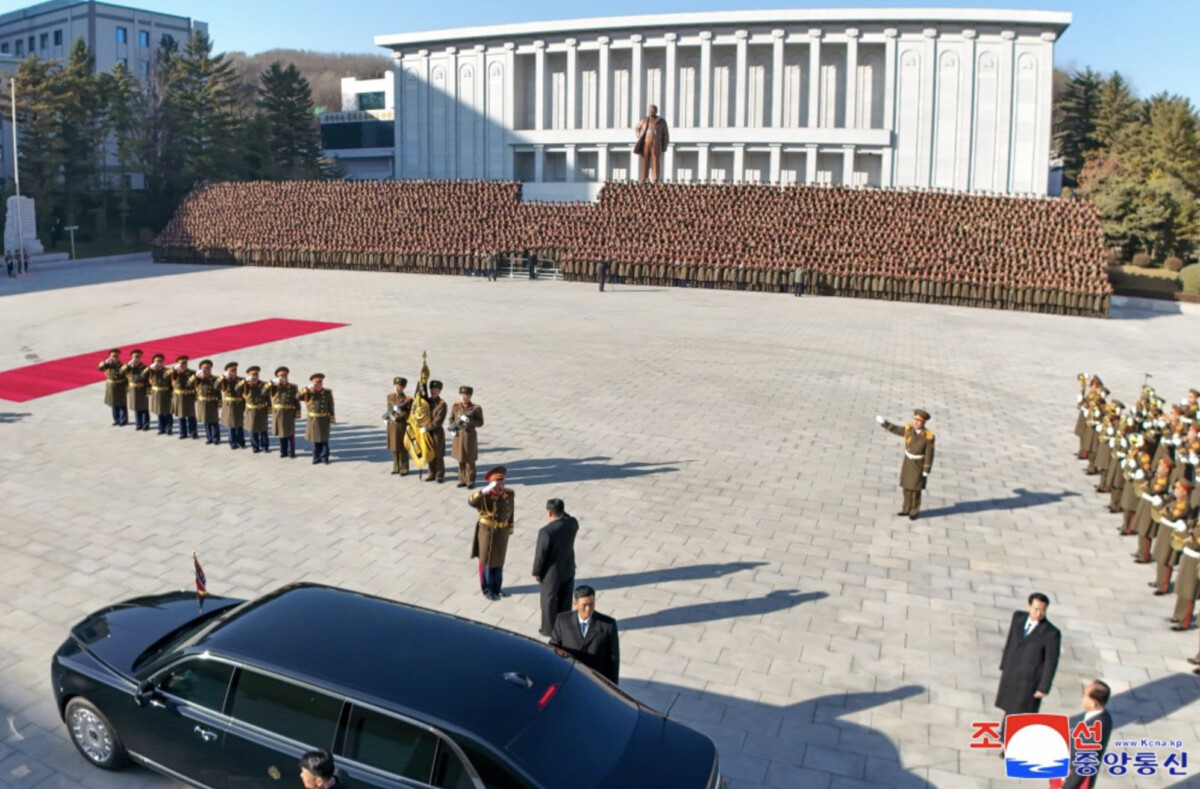As North Koreans face economic hardship, Kim opts for further repression

Amid growing public discontent caused by economic hardship, Kim Jong-un appears to be doubling down on monitoring and repression by further empowering the powerful state agencies responsible for surveillance and control.
“As we have walked a difficult and arduous path of struggle against hostile forces, recording unprecedented legendary transformations and victories in history, this cannot be thought of apart from the achievements and shining feats of the security workers,” Kim said November 18 after being received at the Ministry of State Security by its chief, Ri Chang-dae.
“The security organs are our Party’s trustworthy companions and fruitful assistants,” he added. Kim visited the Ministry of Social Security on the same day.
The emphasis on control fits the pattern of Kim’s leadership. Previously, when discontent was anticipated, Kim mobilized security agencies for large-scale purges and crackdowns.
This latest visit to the organs of repression is likely to have included instructions to eliminate internal “impure elements.”
Such moves to tighten internal control will make it hard for Pyongyang to accept conciliatory gestures from South Korea or its allies. Any focus on domestic repression to stabilize the regime is usually accompanied by a hardline foreign policy, including nuclear development and missile launches.
Intensifying control is already apparent. In North Hamgyong Province and other border areas, surveillance has been strengthened under the pretext of preventing “leaks of internal secrets.”
In Pyongyang, residential inspections are conducted twice a week. To travel to other regions, residents must obtain approval from their neighborhood unit head, local office chief, assigned security officer, and police. Surprise inspections are frequently carried out to catch “impure elements,” workplace deserters, and unapproved travel. If outsiders appear, they must be reported within five minutes through the neighborhood unit to security officers or police.
Failure to comply results in written criticism, public ideological struggle sessions that socially ostracize individuals, and even expulsion from Pyongyang to provincial areas.
Meanwhile, food shortage is severe. While top cadres and the new wealthy class manage, ordinary people are facing economic hardship that is far worse than in previous years.
Autumn is usually the season when food supplies ease, yet reports already indicate that an increasing number of households are surviving on gruel. From teenagers who should be eating well to the elderly, many are going hungry in what should be a season of plenty. This dire situation is a major driver of growing public discontent.
Kim appears to be emphasizing the need for security agencies to demonstrate their loyalty – in other words, crack down on people – rather than devise measures to alleviate the people’s suffering and improve the economy.
“Kim’s inspection of the security agencies clearly shows his intent to further strengthen control over the population. From the end of the year into the new year, new methods of resident control are likely to be introduced,” one South Korea-based expert predicted.
Kim’s inspection of the security agencies is expected to further strengthen the politics of fear, which is likely to be formally presented at the Ninth Plenary Meeting of the Workers’ Party, scheduled for mid-December.
- As North Koreans face economic hardship, Kim opts for further repression - November 22, 2025
- Farmers struggle to collect payment for livestock - November 20, 2025
- Kim Ju-ae: successor or beloved daughter? - October 28, 2025

